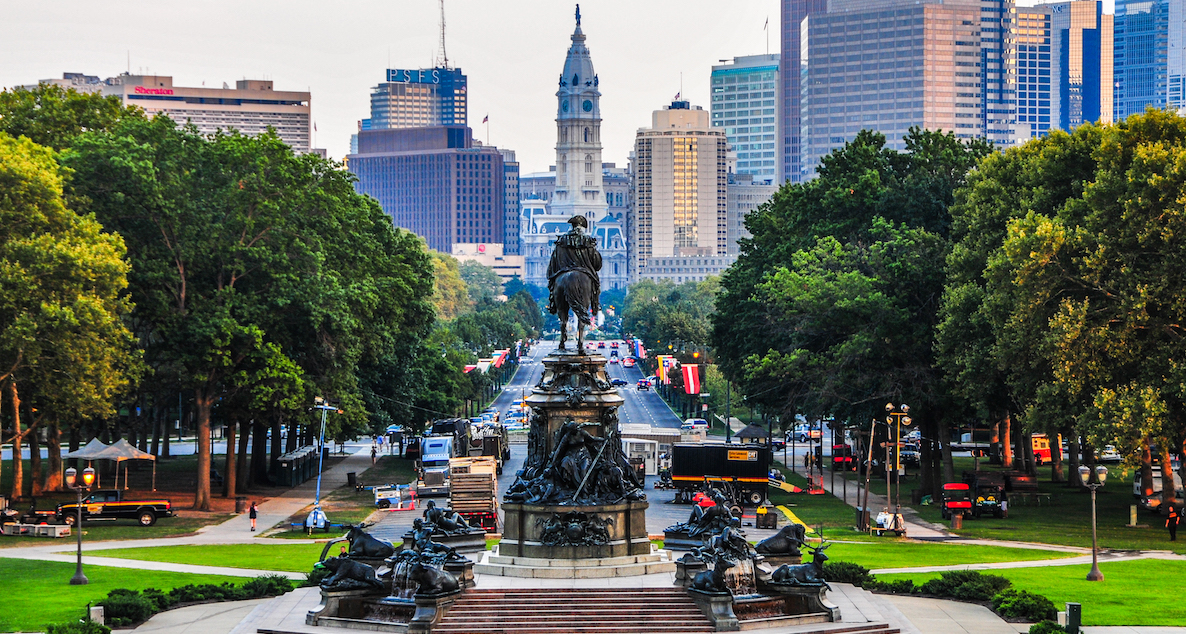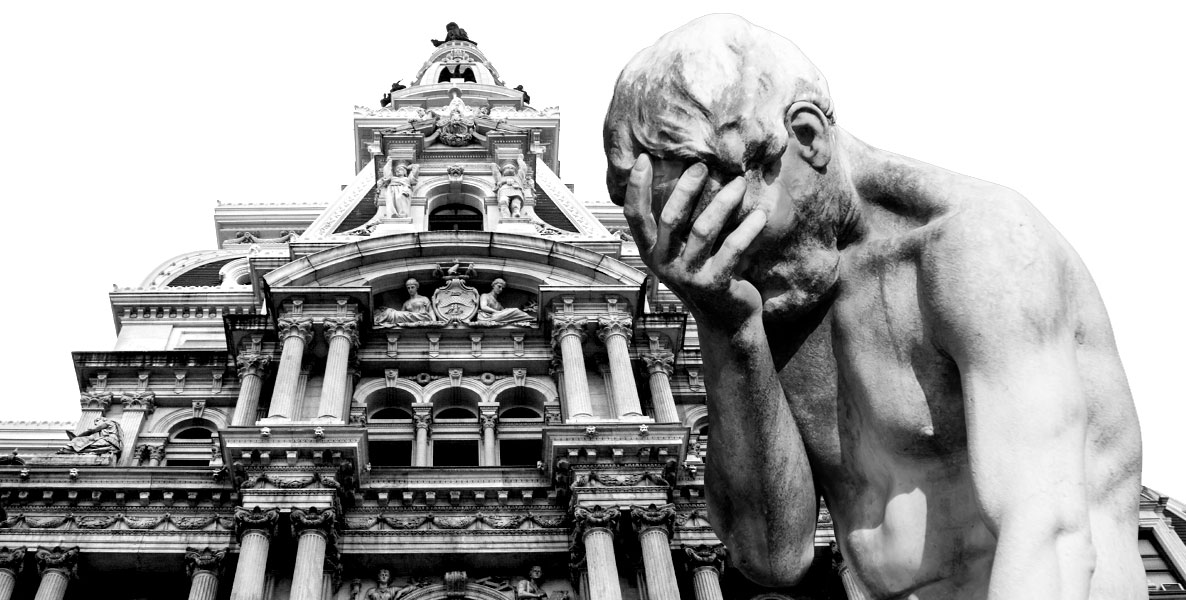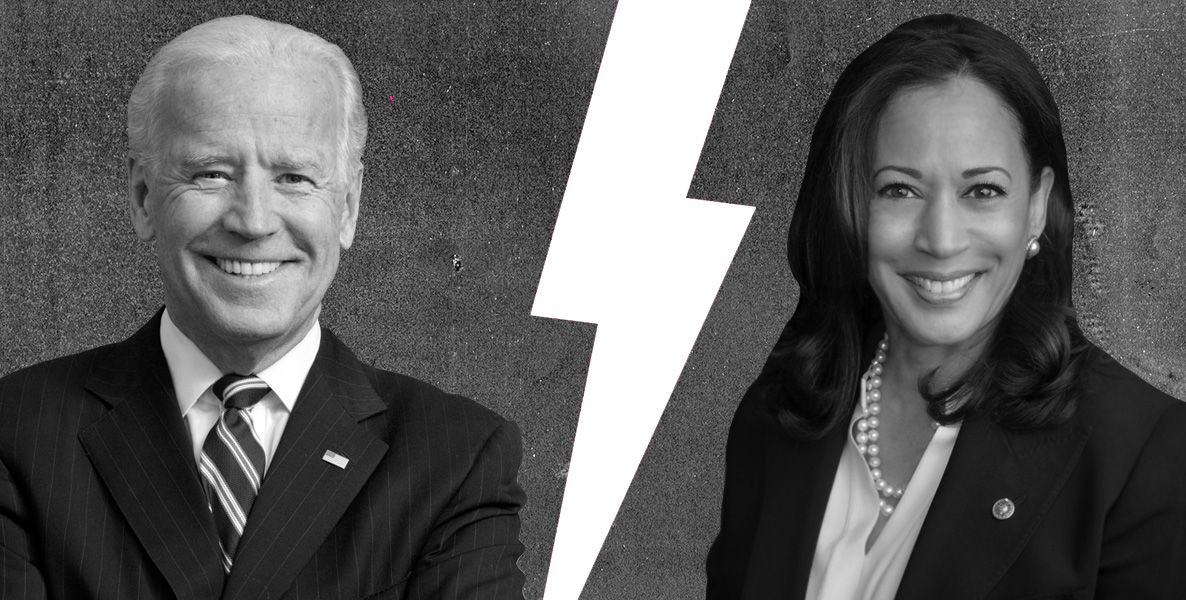Last week’s Democratic candidates debate had all the trappings of a modern media spectacle. There was the dramatic theme music, the in-your-face graphics, the talking heads broadcasting a political debate as if it were a sporting event. Why, MSNBC even aired a two-hour pre-game show, complete with the same inanities from ex-pols usually mouthed by former jocks during NFL games. When it was over, after Kamala Harris had taken on frontrunner Joe Biden on the issue of race, the breathless bloviators were quick to anoint Harris the next rising star, while commenting upon Biden’s inevitable fade.
But what was missing amid all the scorekeeping and talk of “optics” was any real analysis of what had just transpired. And what had just taken place had all the earmarks of why so many ordinary citizens hate politics. In Harris’s faux outrage and deliberate shading of context, as well as in Biden’s unsure, finger-to-the-wind response, we got precisely the kind of racial debate we don’t need: Phony, manipulative, and fact-free.
The tragedy of Joe Biden isn’t that he may lose. It’s that he’s now become complicit in the rewriting of that history. Voters want someone with guts who tells the truth. Last week, a timid Biden and a dissembling Harris both fell short of that standard.
Let’s review. Harris, trailing Biden significantly among African-American voters, particularly of the older female variety in the critical state of South Carolina, began by looking directly at the vice president and saying, “I don’t think you’re a racist.” Think about that one for a moment. Saying “I don’t think you’re a racist” literally puts the question out there; it opens the possibility that someone might think precisely that; that it’s something of a close call. This was classic inoculation on Harris’ part, a way to plant the seed for would-be voters that Biden might be racist at the same time that she literally says the opposite.
Clever politics, but not if you want to occupy the high ground, and not if you think America desperately needs a real and open conversation about race. Joe Biden passed the Voting Rights Act, was the vice presidential choice of the first (and only) African-American president in history, and was instrumental in “mending, not ending” Affirmative Action, expanding the definition of hate crimes, and strengthening laws against employment discrimination. At a time when there arguably is an actual racist in the Oval Office, to even subtly imply that reasonable people can disagree whether Biden is racist is to actually chip away at the outrage that ought to confront real examples of racism.
![]()
So points off to Harris for her practiced and deliberately context-less demagoguery. But then, when Harris turned to attacking Biden for his past opposition to busing, she entered a conveniently fact-free zone. “Vice President Biden,” demanded Harris, “do you agree today that you were wrong to oppose busing in America then?”
During the encounter, and in the hype of the post-debate analysis, one would have thought it was a settled issue: Busing, back in the ‘70s, had been an unqualified progressive success. Except…it wasn’t. As policy, busing was a failure—just as a young senator from Delaware predicted back in the day, when he called it “a liberal train wreck.” Forty-five years later, the verdict is in: Biden was right. The desegregation of public schools via the massive crosstown busing of schoolchildren achieved neither integration nor better educational outcomes.
Harris knew that. But she was armed with a photo from back in the day when she herself was bused, which her team strategically tweeted out the moment the debate concluded. She knew that Biden knew the facts, too. But, given that the 2019 election is shaping up as the Woke Olympics, she also knew that Biden would likely be afraid to make the same case now that he made in the early ‘70s.
Points off to Harris for her practiced and deliberately context-less demagoguery. But then, when Harris turned to attacking Biden for his past opposition to busing, she entered a conveniently fact-free zone.
And she was right. When Biden responded to Harris’s question by mimicking the “states’ rights” verbiage of Civil Rights-era Boll Weevils, he not only played into Harris’ hands, he also made those of us who read the groundbreaking book Common Ground by J. Anthony Lukas—the definitive account of busing’s failure as policy in Boston back in the ‘60s and ‘70s—do a doubletake: Wait a minute. Wasn’t this settled long ago?
![]()
The implication of Harris’s questioning of Biden was that only Archie Bunker-type white racists opposed busing. But there was also widespread progressive opposition to the idea that the best tactic to achieve equality was to bus black boys and girls crosstown and thrust them into dangerous circumstances. That’s why, back in the ‘70s, the majority of white and black citizens opposed the policy; only 4 percent of whites and 9 percent of blacks supported busing.
Harris’s debate performance, in contrast to all the post-debate praise, was cynical and craven, but it was matched by Biden’s gutlessness. One lesson of the 2016 election ought to have been the degree to which fearlessness has become a political commodity. Trump campaigned without fear, self-doubt, or apology. He was the Popeye candidate: I yam what I yam. Some of us were repulsed by that. Enough voters, however, found it refreshing.
![]()
Trump had no core convictions to betray; many in the electorate mistook that for a certain type of character. When Biden reacted to Harris’s broadside by selling out his former principled position, it was a tacit admission that, in 2019, he would be held hostage by the ideological left of his party—facts be damned. Rather than offer some nervous, tortured and legalistic explanation that he only opposed federally mandated busing, Biden could have turned to Harris and said, I take a backseat to no one on civil rights, before listing the litany of his good works on that score. And then he could have made the progressive critique he made nearly 40 years ago: “I happen to be one of those so-called people that are labeled as a liberal on civil rights, but oppose busing,” he said on CNN in 1981. “What I have argued as one who grew up in the civil rights movement and ran for office as a public defender and an active participant in civil rights cases, I have argued that the least effective remedy to be imposed is the busing remedy.” He noted that busing would fail because of the undue burden it placed on African-American families and children.
Harris’s debate performance, in contrast to all the post-debate praise, was cynical and craven, but it was matched by Biden’s gutlessness.
Why not make that case now? Imagine if Biden had glared back at Harris and said: “Busing was a failed policy. I didn’t believe then, and I don’t believe now, that we ought to rip some black children from their neighborhood schools and friends. It wasn’t fair to them, and it wasn’t fair to the black children who, unlike you, Senator, were left behind in sub-par schools.”
From there, Biden could have pivoted to the policies he’s already put forth that are designed to make all schools better. Those policies essentially do what busing never did, like tripling federal funding of low-income schools (from $16 billion to $48 billion per year) in order to raise teacher salaries, extend pre-K, and make Advanced Placement courses available in all schools.
That argument would have been consistent with the Biden brand: Practical, passionate, non-ideological. The reaction to do battle with Trump ideologically is a fools’ errand, Biden could say. Trump is no ideologue. He’s indecent and incompetent. And the best way to take him on is to argue we need To Make America Fair Again. Forty-five years ago, Biden knew that taking children from their schools, friends and teachers and busing them crosstown to meet some desegregation quota dictated by a judge or bureaucrat wasn’t fair to them.
The tragedy of Joe Biden isn’t that he may lose. It’s that he’s now become complicit in the rewriting of that history. Voters want someone with guts who tells the truth. Last week, a timid Biden and a dissembling Harris both fell short of that standard.







